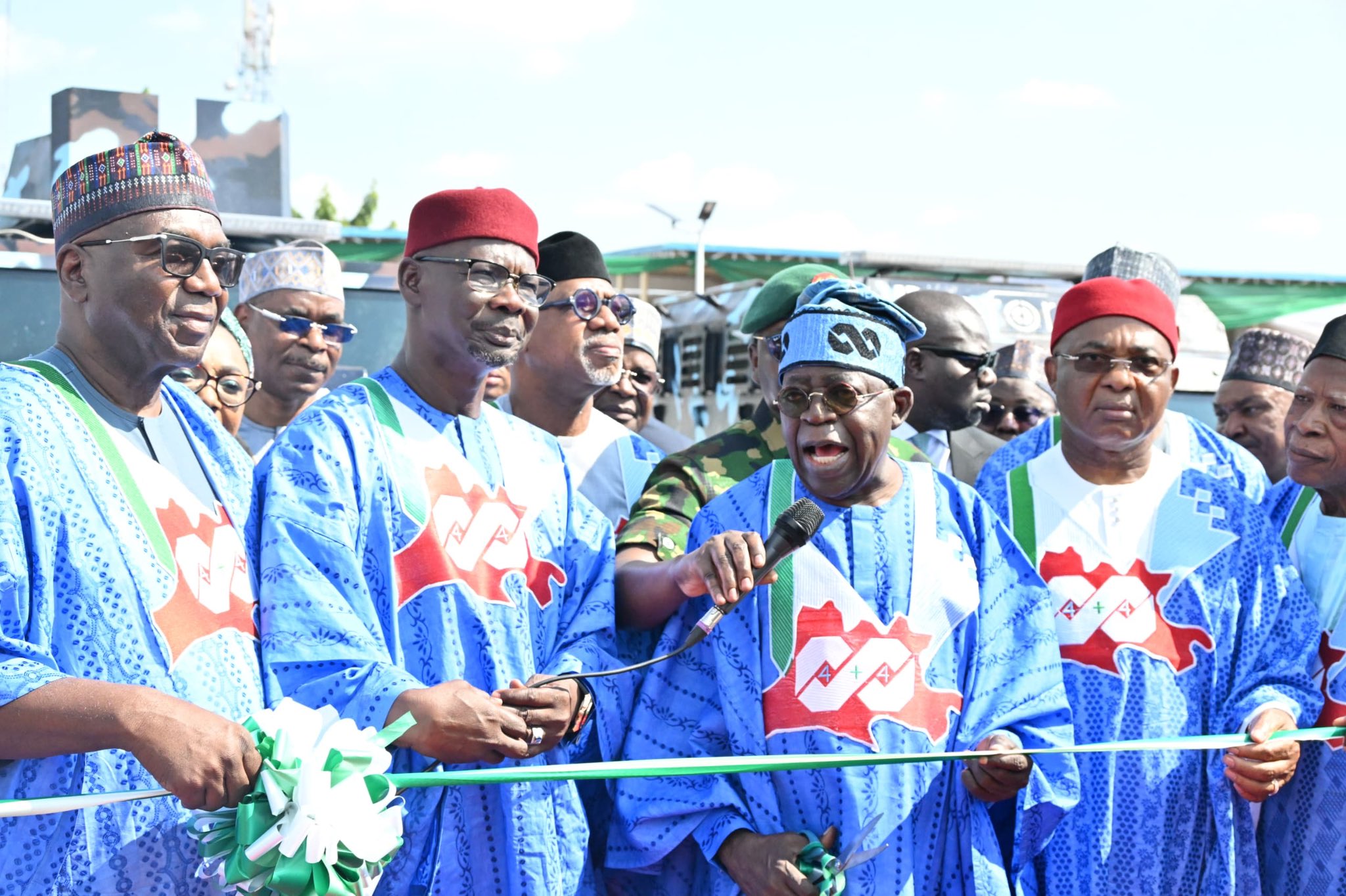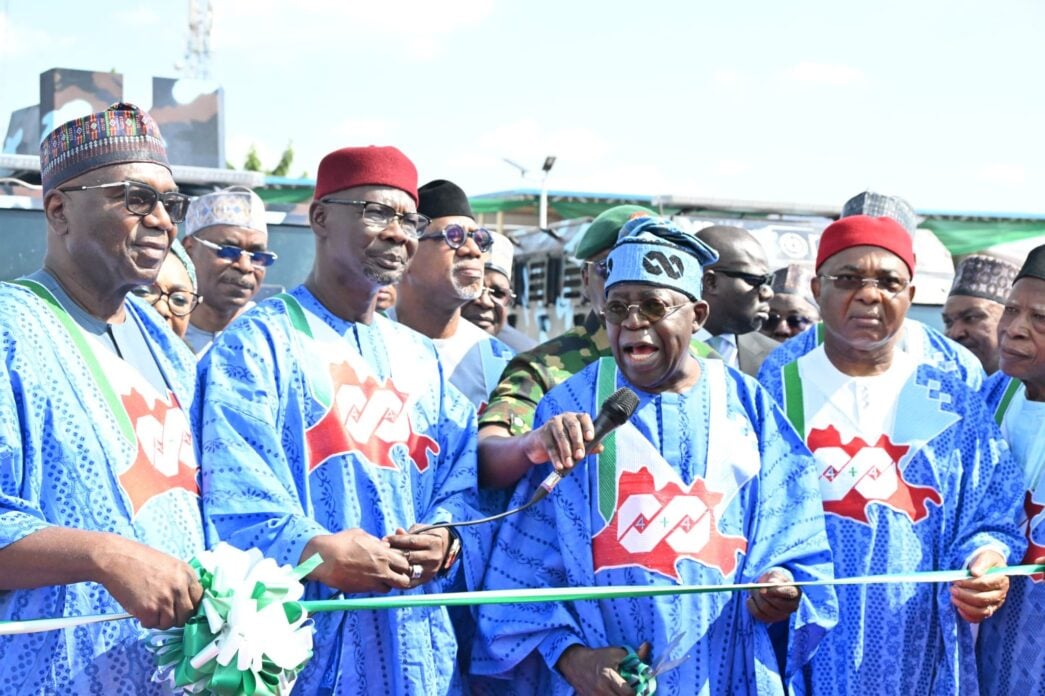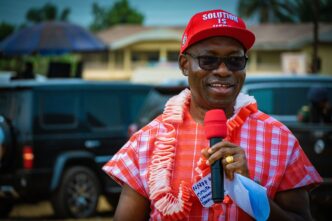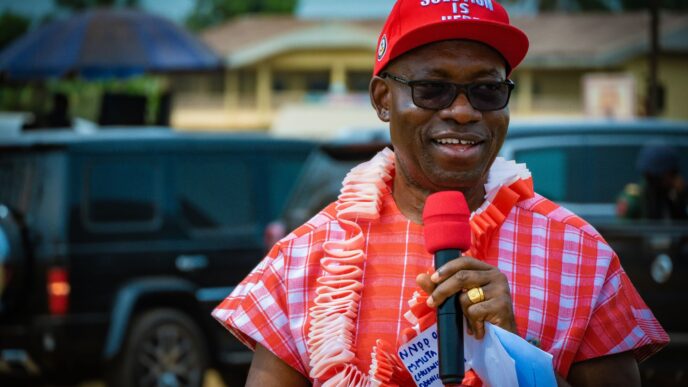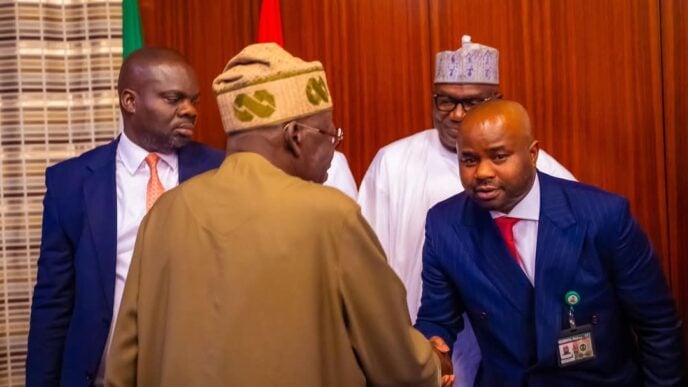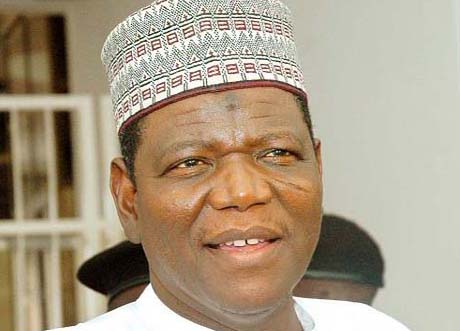President Tinubu inaugurating projects in Nasarawa
After serving as Nigeria’s Inspector-General of Police, the highest rung in the nation’s law enforcement hierarchy, I embraced my exit from the police with a new kind of duty: active citizenship. Freed from the daily demands of policing, I have found time to engage more deliberately with the broader realities shaping our country. In particular, my home state of Nasarawa has gained my attention more as I keep observing socio-political trends in the state. What I see is not mere happenstance or fleeting progress, it is the outcome of deliberate vision, strategic governance, and a leadership committed to sustainable change.
Governor Abdullahi Sule is at the forefront of this evolution. A man of quiet determination and focus, Governor Sule has taken the helm with a clear roadmap implementing the Nasarawa Economic Development Strategy (NEDS) and steering the state toward a future of inclusive industrial growth and national relevance. The NEDS is a comprehensive economic blueprint with measurable goals to position Nasarawa among the top three most competitive states in Nigeria. And although the journey is still unfolding, the results are beginning to resonate.
One of the most significant developments is Nasarawa becoming Nigeria’s lithium hub with global demand for lithium surging due to the Electric Vehicle (EV) boom and the energy transition, Nasarawa’s vast deposits have attracted intense interest from investors and policymakers alike.
On May 10, 2024, President Bola Ahmed Tinubu commissioned a landmark lithium processing plant in the state, a historic moment that marked Nasarawa’s entry into the league of globally relevant industrial territories. A year later, the President returned to Nasarawa to inaugurate an array of infrastructure and industrial projects, legacy initiatives designed to ignite long-term socio-economic change. These include roads, industrial parks, power infrastructure, and policy reforms that ease the cost and ease of doing business.
Advertisement
A glimpse of China in Nigeria?
Comparisons between Nasarawa and China may seem ambitious at first glance, but the parallels are striking. China’s rise as the global leader in electric vehicles and 3C (computer, communication, and consumer electronics) industries was anchored on a foundation of mineral exploitation, aggressive infrastructure development, and strategic public-private partnerships. Nasarawa is taking similar steps, harnessing its lithium reserves as a catalyst for industrialization and economic diversification.
What makes Nasarawa even more attractive is its strategic location. The state borders the Federal Capital Territory (FCT), giving it unique geographic leverage. Towns like Karu, with a growing population of Abuja-bound commuters, are now being viewed as future industrial clusters. If infrastructure expansion continues at the current pace, this corridor could evolve into a major economic powerhouse, a Nigerian version of Shenzhen in the making.
While lithium and industrialization dominate the headlines, Nasarawa remains grounded in one of Nigeria’s enduring strengths, which is agriculture. Nigeria is the world’s largest producer of cassava, yam, and cowpea, and the agricultural sector contributed 22.02% to the country’s nominal GDP in Q4 2024, according to the National Bureau of Statistics. However, the nation’s heavy dependence on oil for revenue and foreign exchange continues to expose the economy to external shocks.
Advertisement
Nasarawa’s ability to blend mineral resource development with agro-industrial expansion offers a compelling model for national economic diversification. The state is not abandoning its agricultural roots; rather, it is creating synergies between farming, agribusiness, and mineral processing to build a thriving and more integrated economy.
What Nasarawa has achieved in recent years is commendable. But sustaining this momentum requires deeper collaboration between the state and federal governments, as well as strategic partnerships with the private sector and development agencies.
From my experience as a former IGP, I can tell you that economic development is a powerful crime prevention strategy. In Nasarawa, focused initiatives in jobs, skills, and inclusion can reshape incentives, rebuild trust, and create a virtuous cycle where prosperity drives peace. Also, using economic prosperity to prevent crime in the state is both strategic and sustainable as it addresses underlying root causes of poverty, lack of opportunity, and social exclusion.
If Nigeria is truly committed to industrializing, it must pay closer attention to what is unfolding in Nasarawa. The state is no longer on the sidelines of national discourse. It is emerging as a key player; a new frontier for innovation, industry, and investment. In lithium, in agriculture, and in the courage to dream big, Nasarawa is telling a story of transformation. It is Nigeria’s best-kept industrial secret — but not for long.
Advertisement
Adamu is former Inspector-General of Police.
Views expressed by contributors are strictly personal and not of TheCable.

